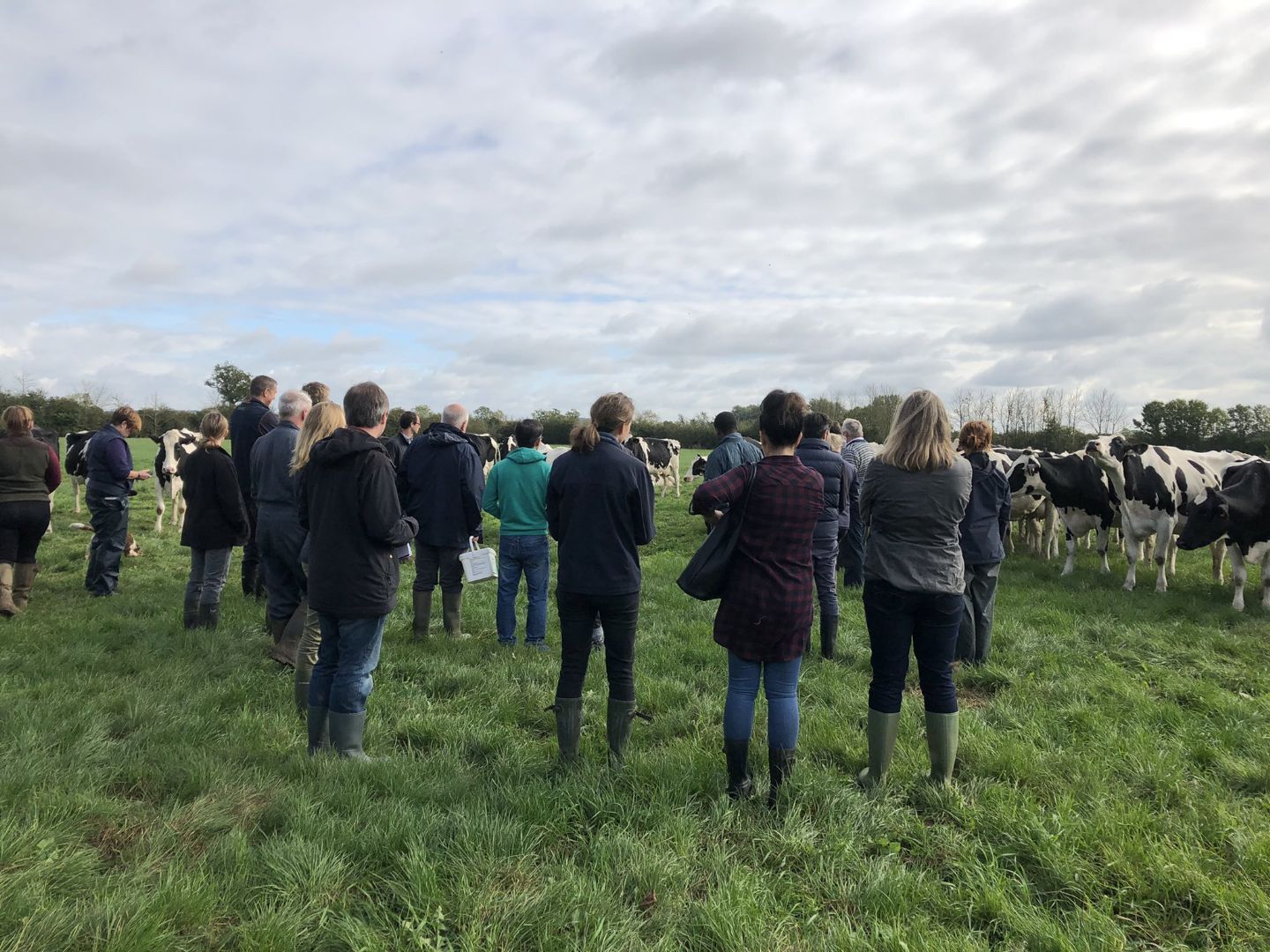
Farmer action groups are an invaluable tool in the knowledge exchange toolkit.
EU Project ROADMAP is providing four online training sessions about reducing antimicrobial use (AMU) on farms. The first, given by Mette Vaarst from the International Centre for Research in Organic Food Systems, focused on the Stable Schools (Farmer Action Group) approach.
Originally used in Uganda, with the name Farmer Field Groups, the approach allowed cattle farmers to learn and develop solutions to animal health issues. This practice-based approach allowed farmers to exchange knowledge and experience for context-specific solutions. The approach was taken into Danish contexts to address issues with antibiotic use and organic animal production in dairy and given the name ‘Stable Schools’.
The same approach was then used by our very own Lisa Morgans in her Farmer Action Group work towards reducing on-farm antimicrobial usage – the subject of her PhD research.
What is a Farmer Action Group?
A Farmer Action Group includes a facilitator and a group of about six farmers, local to each other to reduce travel time. Having a diverse group is best because there are things to be learned from different individuals, farms and systems.
Each member takes a turn to host the meeting on their farm and be the focus of the interventions while other group members act as their advisers. The host farmer identifies a success to share that others can learn from, and two challenges to raise and discuss with the group. It is important to look at successes as well as challenges, as there is a lot to learn through understanding why something has worked.
A Farmer Action Group involves a series of meetings which feature a farm walk at the host farm, followed by a structured roundtable discussion. The host farmer shares their challenges, and the facilitator’s role is to ensure every member of the group shares their thoughts on how the farm could overcome the difficulty.
Importantly, the host farmer reviews the suggestions and selects - based on their knowledge of their own farm - the approach they deem most likely to work. They commit to implementing the changes required as part of their chosen approach. There is also some form of follow up to review whether the changes are successful, for example at the start of the next Farmer Action Group meeting.
Ideally, Farmer Action Groups take place on farms, but it is possible to run them online by recording a farm walk and scheduling a video call to discuss each host farm.
Why take part in a Farmer Action Group?
The Farmer Action Group approach can be applied to any farming issue where:
- There is a common goal which is relevant to all group members
- There is complexity – farmers are used to handling complexity and must consider the whole system, whereas many advisers will specialise in one area such as nutrition, animal health or agronomy, so might miss solutions which require seeing the ‘bigger picture’
- Innovative and out-of-the-box thinking is needed – farmers are good at finding solutions, bringing them together can be the catalyst to develop effective ideas and approaches
Achievable, practical solutions are the focus of the process. The process itself can be a hugely valuable and rewarding experience because:
- It creates the opportunity for farmers to share their realities and exchange knowledge based on similarities and differences in their experiences
- The farmers within the group have ownership over what is discussed – the host farmer identifies their challenges and conclusions from the process, and commits to implementing the changes they think will work
- It provides social support – farmers help each other to plan and implement changes
Why a good facilitator is important
The role of the facilitator is very important – they are not there to give advice, be the expert, or the authority figure. They ask insightful questions, structure the meeting, keep discussions on track and take care of notes. They create an enabling environment for farmers to work together in an efficient and effective manner.
These skills – active listening and investing time in getting a detailed understanding of the goals, dynamics and problems on farms – can be very useful in advisory contexts. However, not every adviser is trained in these skills as their focus is on providing information whereas a facilitator’s focus is on drawing out the knowledge and expertise of farmers.
More information on Farmer Action Groups in reducing AMU can be found via Future Learn and on the CattleCast podcast. If you are interested in participating in a Farmer Action Group keep an eye on the news section of the IfA website, or sign up to our mailing list here to be the first to hear about new opportunities.




